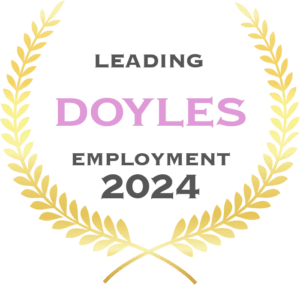
Administrative employees are the backbone of any successful business. From managing correspondence and scheduling appointments to maintaining records and assisting with financial transactions, clerks play a critical role in ensuring the smooth operation of a company.
To safeguard the rights and entitlements of clerks, the Fair Work Commission has established the Clerks Private Sector Award. This award sets out minimum standards for pay rates, working hours, leave entitlements, and other important conditions of employment.
Despite the importance of complying with the Clerks Private Sector Award, many employers need help navigating its complexities. This can lead to unintentional staff underpayments, resulting in serious consequences such as backpay claims, legal disputes, and reputational damage.
With the Fair Work Ombudsman actively enforcing award compliance, ensuring that your business is fully compliant with the Clerks Private Sector Award is more important than ever.
This article will provide a comprehensive guide to help you understand and comply with the Clerks Private Sector Award.
Who Does the Clerks Private Sector Apply To?
The Clerks Private Sector Award applies to employees and their employers engaged in clerical and administrative work.
The award defines clerical and administrative work as including tasks such as:
- Filing
- Photocopying
- Typing
- Managing accounts
- Invoicing and billing
- Record-keeping
- Operating telephone switchboards and answering calls
- Attending reception desks
- Providing secretarial or executive support services
Some examples of employees who the Clerks Award covers include:
- Administrative assistants
- Receptionists
- Wholesale travel operators who sell packages directly to other travel companies
- Employees with diploma qualifications who complete financial or tax schedules or income tax returns (except where their employer operates in the banking, finance or insurance industry)
- In-house bookkeepers
- Clerical employees in a retail head office
Example
John is a bookkeeper working for a manufacturing company in the private sector. His responsibilities include maintaining financial records, preparing invoices, managing accounts, and liaising with clients and suppliers. As a bookkeeper, John is covered by the Clerks Private Sector Award.
In addition to these employees, the Clerks Award covers labour-hire businesses and their employees placed with an organisation.
Employment Types
Administrative employees under the Clerks Private Sector Award generally fall into one of three employment categories:
| Full-Time Employee | Part-Time Employee | Casual Employee |
| Engaged to work 38 ordinary hours per week. | Engaged to work fewer than 38 ordinary hours but generally has reasonably predictable work hours. | There are no guaranteed working hours. |
Conditions of Employing Staff Part-Time
When employing part-time staff, it is important to ensure they are given the same entitlements as full-time staff on a proportional basis according to their average hours worked per week. This includes benefits such as annual and personal leave.
Part-time staff must be paid for a minimum of 3 hours per shift, and any changes to their guaranteed hours must be agreed upon in writing by both the employee and employer. Additionally, any changes to the employee’s availability must only be made if their personal circumstances have changed and must be provided with 14 days written notice.
To avoid misunderstandings and ensure clarity, employers must agree in writing with their part-time employees on a regular work pattern that specifies the hours worked each day, which days of the week the employee will work, and the starting and finishing times for each day.
Casual Employment Requirements
If you choose to hire clerical staff on a casual basis, the terms of their casual employment must include the following:
- At least 3 hours of pay per shift
- 25% loading on top of their ordinary base pay rate (since they don’t receive annual and personal leave, paid public holidays, potential redundancy benefits, and notice of termination)
- Payment in terms of applicable penalty rates if their shift exceeds 8 hours per day and/or 38 hours per week (see discussion below)
- The option to enter into a weekly, fortnightly or per engagement pay agreement
Casual Employees Can Request to Convert Employment Type
As per the National Employment Standards, casual employees who have been working for the same employer for at least one year and have maintained a regular work schedule for the past six months have the right to request to be converted to full-time or part-time employment.
Employers must consider these requests in good faith and may only refuse them for sound business reasons, such as a foreseeable change in the employee’s working hours or business circumstances. It is important to note that the employee has the option to decline the conversion offer.

Employment Entitlements for Employees Other than Shiftworkers
The Clerks Private Sector Award distinguishes employment entitlements according to whether you classify your employees as a shiftworker or not. The entitlement discussion below refers to employees other than shiftworkers (see shiftwork discussion later in the guide).
What are the Ordinary Hours of Work?
The Clerks Award permits employees to work their ordinary hours between 7:00 am and 7:00 pm from Monday to Friday and between 7:00 am and 12:30 pm on Saturdays. Employees can work a maximum of 10 ordinary hours per day, excluding unpaid meal breaks.
An employee and their employer can agree on the employee taking time off during ordinary hours, provided that the employee makes up the missed time by working during ordinary hours at another time.
The employer and employee can mutually agree to move the spread of ordinary hours up to one hour earlier or later.
If an employee covered by this award works with other employees covered by a different modern award that sets a spread of hours, the employer can direct the employee to work within the spread of ordinary hours prescribed by the modern award that covers most employees at the workplace. This ensures consistency across the different awards and avoids any confusion or conflicts regarding working hours.
What Rostering Arrangements are Available Under the Clerks Private Sector Award?
Employers can schedule employees to work longer hours on some days and take a day off later to make up for it. If an employee is on this type of roster for 20 days over 12 months, they get 12 rostered days off.
The employer must tell the employee at least four weeks before they will have a rostered day off. But, the employer and employee can agree that the employee works on their rostered day off and builds up to 5 extra days off to use later.
If an employee works on their rostered day off to build up additional days off, they won’t get paid extra for working overtime.
If an employee takes a banked rostered day off, they should still be paid the same as they would if they worked the average number of hours a week. In other words, even if they work less than their usual hours that week, they should not have a reduction in their pay.
When Should Your Employees Take Their Breaks?
Employees who work more than 5 hours in a row can take an unpaid meal break lasting 30 to 60 minutes. An employee must take their break within the first 5 hours of work and 5 hours after returning to work after the break.
If an employer requires an employee to work during their scheduled meal break, the employer must pay the employee double (200%) the minimum hourly rate. This applies from the time the meal break is supposed to begin until the employee is allowed to take the meal break.
Other than unpaid meal breaks, employees must also receive paid rest breaks according to the following table:
| Hours Work | Paid Break Entitlement |
| Between 3 and 8 hours | One 10-minute rest break |
| More than 8 hours | Two 10-minute rest breaks |
| More than 4 hours overtime on a Saturday morning | One 10-minute rest break |
Employers may determine when employees take these paid rest breaks.

Minimum Pay for Employees in the Clerical Industry
Employers must pay their employees at least the pay rates and entitlements specified in the award weekly or fortnightly, depending on the pay period cycle.
The Fair Work website has various tools and resources to help you calculate your clerical staff’s wages.
Alternatively, you can access the pay guide summaries containing information about the minimum wages (pay rates), penalties, and allowances.
However, note that these pay rates are adjusted annually per the national minimum wage. Therefore, you must use the applicable pay guide summary when determining the applicable pay rates.
Annualised Wage Arrangements
An annualised wage arrangement is when an employer pays their employee an annual wage or salary that includes specified entitlements provided by the Clerks Award.
However, to ensure the employee is not disadvantaged, the employer needs to inform them about the arrangement and which entitlements are included. The total annual wage must be at least the same as what the employee would have received if they were paid individually based on the Award.
The employer must also conduct an audit every 12 months to compare the total annual wage paid with the amount the employee would have received under the Award.
Superannuation Guarantee
All employers must pay a superannuation guarantee on behalf of their employees. The current rate is 10.5% of an employee’s ordinary earnings for the 2022–23 financial year.
What Allowances are Available under the Clerks Private Sector Award?
Eligible employees under the Clerks Private Sector Award receive additional pay, in the form of allowances, for specific work conditions and work-related skills, including:
| Allowance Type | Description |
| First-aid allowance | When an employer designates an employee to perform first aid duty, and that employee holds a valid first aid qualification, they are entitled to an allowance. |
| Laundry allowance | If your employee’s work involves tasks that cause damage to their clothing and the employer does not provide a uniform; then the employer is obligated to pay the employee an allowance to cover laundry expenses. |
| Meal allowance | If an employee is required to work overtime for more than 1.5 hours and was not given 24 hours’ notice before the overtime, the employer must provide the employee with a meal allowance. |
| Vehicle allowance | An employee who is required to use their own vehicle for work purposes, such as driving to different locations or making deliveries, is entitled to receive a vehicle allowance to cover the costs of using their own vehicle. |
| Living away from home allowance | If an employee is required to work away from their regular work and spend a night away from home, the employer must provide an allowance to cover any reasonable expenses, such as transportation, meals, and lodging. |
| Higher duty allowance | If an employee performs higher duties than their usual job for part of a day, the employer must pay them at the higher classification rate for that time. For instance, if a data entry clerk works as a team leader for two hours during their shift, they must be paid the team leader rate for those two hours. |
These allowances are generally adjusted annually. You can access the full allowance conditions in clause 19 of the Clerks Private Sector Award and the allowance rates in the relevant pay guide.
What Are Your Obligations When Staff Work Overtime?
This award makes provisions for full-time staff who work:
- Beyond their ordinary weekly hours
- More than 10 hours in a day
- Outside their agreed-upon span of hours
- Overtime on their rostered day off (which has not been substituted or banked)
Part-time employees and casual employees must also be compensated for overtime if they work more hours than those agreed upon.
The following overtime rates will apply in either of the circumstances mentioned above:
| Overtime Hours | Overtime rate for full- and part-time employees | Overtime rate for casual employees (including casual loading) |
| First 2 hours (Monday – Saturday) | 150% | 175% |
| After 2 hours (Monday – Saturday) | 200% | 225% |
| Sunday – all day | 200% | 225% |
| Public holiday – all day | 250% | 275% |
These overtime rates also apply (for a minimum of 3 hours) if an employer requires an employee to return to duty after completing their usual day of work.
Rest Periods After Working Overtime
When an employee works overtime, they must be given a break of at least ten consecutive hours between their work hours on two successive days, whenever reasonably possible. If it is not reasonably possible to give them ten consecutive hours off, the employer must pay them at 200% of the employee’s minimum hourly rate until they can reasonably take the 10 hours off.
Are Employees Allowed to Take Time Off Instead of Receiving an Overtime Payment?
Yes, the Clerks Private Sector Award permits an employer and employee to agree in writing that the employee can take time off instead of being paid for overtime. However, you must consider certain conditions:
- The amount of time off granted must be equal to the overtime pay the employee would have received. For example, an employee who works 2 hours of overtime is entitled to 3 hours off (i.e. 2 x 1.5).
- The employee must take the time off within six months of working the overtime, and both parties must agree. If the time off is not taken within six months, the employer must pay the employee for the overtime at the overtime rate.
- If the employee requests it, the employer must pay the employee for the overtime covered by the agreement but not taken as time off. Employers must make the payment in the first full pay period following the employee’s request.
- Employers are not permitted to pressure or unduly influence employees to take time off instead of receiving overtime pay.
- In the event of the employee’s employment being terminated, the employer must pay the employee for the overtime worked at the applicable overtime rate.
Penalty Rates
The Clerks Private Sector Award includes higher pay rates, known as penalty rates, for working during certain days and times of the week outside of normal working hours. These include the following:
| Day Worked | Penalty Rate | Minimum Hours(Employees receive minimum payment even if they don’t work the full duration) |
| Saturday | 125% | No minimum hours |
| Sunday | 200% | 4 hours |
| Public Holidays | 250% | 4 hours |

Conditions of Employing Staff to Work Shiftwork
Employers are allowed to hire clerical staff as shiftworkers, where the employee’s regular work hours are scheduled into one of three shifts:
- An afternoon shift that ends after 7:00 pm and before midnight
- A night shift that ends after midnight and before 7:00 am
- Permanent night shift that does not rotate with other shifts or day work, lasting for a period of four consecutive weeks or longer.
As with other employees, shiftworkers should only work a maximum of 10 hours per day.
Regarding their rostering arrangements, a shift worker can work a maximum of 6 shifts per week (including Sunday).
Breaks for Shiftwork
Under the Clerks Awards, shiftworkers are entitled to paid meal and rest breaks according to the table below:
| Hours Work | Paid Break Entitlement |
| Within 5 hours of starting the shift | One 20-minute meal break |
| Between 3 and 8 hours | One 10-minute rest break |
| More than 8 hours | Two 10-minute rest breaks |
| More than 4 hours overtime on a Saturday morning | One 10-minute rest break |
Overtime for Shiftwork
The following rates apply to shiftworkers who work overtime:
| Overtime Hours | Overtime rate for full- and part-time employees | Overtime rate for casual employees (including casual loading) |
| In excess of their ordinary weekly hours | ||
| First 3 hours | 150% | 175% |
| After 3 hours | 200% | 225% |
| In excess of their ordinary daily hours per shift | ||
| First 2 hours | 150% | 175% |
| After 2 hours | 200% | 225% |
| Saturday, Sunday or Sunday that is not an ordinary working day | 200% | 225% |
As with staff who are not shiftworkers, shitfworkers can take time off instead of overtime pay and the same conditions will apply.
Rest Periods After Working Overtime
When an employee works overtime, they must be given a break of at least 8 consecutive hours between their work hours on two consecutive days, whenever reasonably possible. If it is not reasonably possible to give them 10 consecutive hours off, the employer must pay them at 200% of the employee’s minimum hourly rate until they can reasonably take the 8 hours off.
Penalty Rates for Shiftwork
Employers must also pay shift workers penalty rates for all ordinary hours worked during their shifts, as follows:
| Shift Type | Penalty Rate |
| Afternoon or night | 15% |
| Permanent night | 30% |
| Saturday, Sunday or Public Holiday | 50% |
Note: If an employee starts a shift between 11 pm and midnight on a day that isn’t a public holiday, but the shift continues into a Sunday or public holiday, they won’t get paid the Sunday or public holiday penalty rate for the time worked on that Sunday or public holiday.
However, if the shift starts between 11 pm and midnight on the day before a Sunday or public holiday that extends into that Sunday or public holiday, they will be entitled to the Sunday or public holiday penalty rate for the time worked on that day.

What are the Annual Leave Provisions under the Clerks Private Sector Award
The National Employment Standards (NES) prescribe the annual leave provisions for employees covered by the Clerks Private Sector Award.
Employers must pay their employees 17.5% leave loading in addition to their annual leave entitlements.
Regarding shiftwork clerical employees, they must receive the higher amount between an annual leave loading of 17.5% of their ordinary pay rate or the weekend and shift penalties they would have received if they were not on leave during that period.
What Alternative Annual Leave Arrangements Can an Employee Request?
- Leave in advance: An employee can take paid annual leave in advance if agreed upon in writing with the employer.
- Cashing out annual leave: Employees may be able to cash out some of their accrued annual leave as long as certain conditions are met and at least four weeks of leave are retained.
- Excessive leave accruals: If an employee has accrued more than eight weeks of paid annual leave (or ten weeks for shift workers), they and their employer may agree to reduce the amount by taking some leave.
Key Takeaways
If you are uncertain about your obligations under the Clerks Private Sector Award, seeking legal advice is essential to ensure compliance.
WilliamsonBarwick is a leading employment law firm with extensive experience in advising employers on their obligations under the Award. Our team of skilled lawyers can assist you in understanding your legal obligations, as well as help you resolve any disputes that may arise under the Award.
Contact us today to discuss your needs and how we can assist you.











